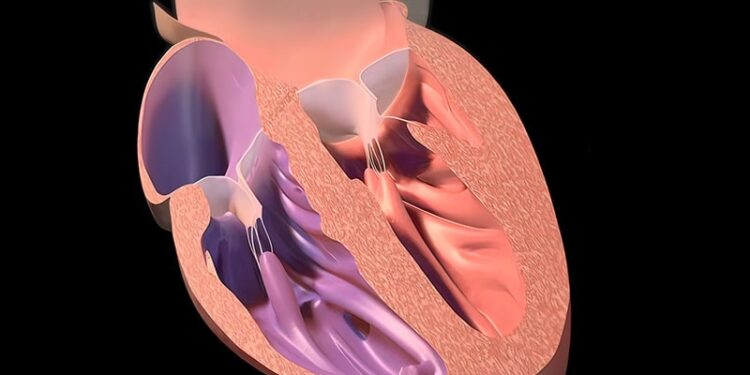TOPLINE:
Finerenone, a third-generation nonsteroidal mineralocorticoid receptor antagonist, showed promise in reducing the incidence of cardiovascular events in patients with heart failure (HF). However, its abrupt withdrawal after long-term use was associated with an increased incidence of serious adverse events (related to the heart, leading to death approximately 30 days after withdrawal of treatment.
METHODOLOGY:
- Guidelines recommend lifelong use of therapies for HF due to their presumed lasting benefits; however, clinicians and patients frequently question whether such treatments can be safely stopped once the disease becomes stable.
- Researchers conducted a secondary analysis of the FINEARTS-HF trial to assess the cardiovascular effects of discontinuing finerenone after long-term use of the drug.
- The FINEARTS-HF trial included 6001 patients with symptomatic HF and left ventricular ejection fraction of at least 40% who were randomly assigned to receive either finerenone (mean age, 71.9 years; 45.1% women) or placebo (mean age, 72 years; 45.9% women) for a median duration of 2.6 years.
- After the treatment phase ended, 3742 surviving patients (1852 on placebo and 1890 on finerenone) were withdrawn from the interventions; the patients remained blinded to the treatment and withdrawal.
- Adverse events were assessed approximately 30 days after the withdrawal, focusing on serious cardiovascular episodes or any event resulting in death.
TAKEAWAY:
- Before the withdrawal, patients receiving finerenone vs placebo experienced fewer serious cardiovascular adverse events or adverse events leading to death (6.0 vs 9.2 per 100 patient-years).
- The withdrawal of finerenone was associated with a 2.8-fold increase in the incidence of cardiovascular events or adverse leading to death, a pattern not observed after the withdrawal of placebo (time period-treatment P for interaction = .006).
- Most of the cardiovascular events in the withdrawal period were related to HF; withdrawal of finerenone vs placebo was associated with more HF-specific serious events or adverse events leading to death (time period-treatment P for interaction = .012).
IN PRACTICE:
“Global implementation efforts are needed to promote long-term MRA [mineralocorticoid receptor antagonist] therapy persistence to maximize treatment potential. Minimal changes in serum potassium or kidney function during MRA therapy should not automatically lead to treatment interruption,” the researchers wrote.
SOURCE:
This study was led by Muthiah Vaduganathan, MD, MPH, of Harvard Medical School in Boston. It was published online on July 28, 2025, in the Journal of the American College of Cardiology.
LIMITATIONS:
Patients assigned to receive finerenone or placebo may no longer have been directly comparable years after randomization. Clinical events during the withdrawal period relied on reporting of adverse events without adjudication. Fewer than 50 clinical events were recorded during the short withdrawal period, reducing the precision of the estimates.
DISCLOSURES:
The FINEARTS-HF trial was funded by Bayer. Several authors reported serving on advisory boards, having speaker engagements, receiving research support, and having other financial ties with multiple pharmaceutical, biotechnology, and healthcare companies. Three authors reported being employees of Bayer.
This article was created using several editorial tools, including AI, as part of the process. Human editors reviewed this content before publication.
Source link : https://www.medscape.com/viewarticle/benefits-hf-drug-may-weaken-soon-after-withdrawal-2025a1000kaq?src=rss
Author :
Publish date : 2025-07-31 04:15:00
Copyright for syndicated content belongs to the linked Source.











